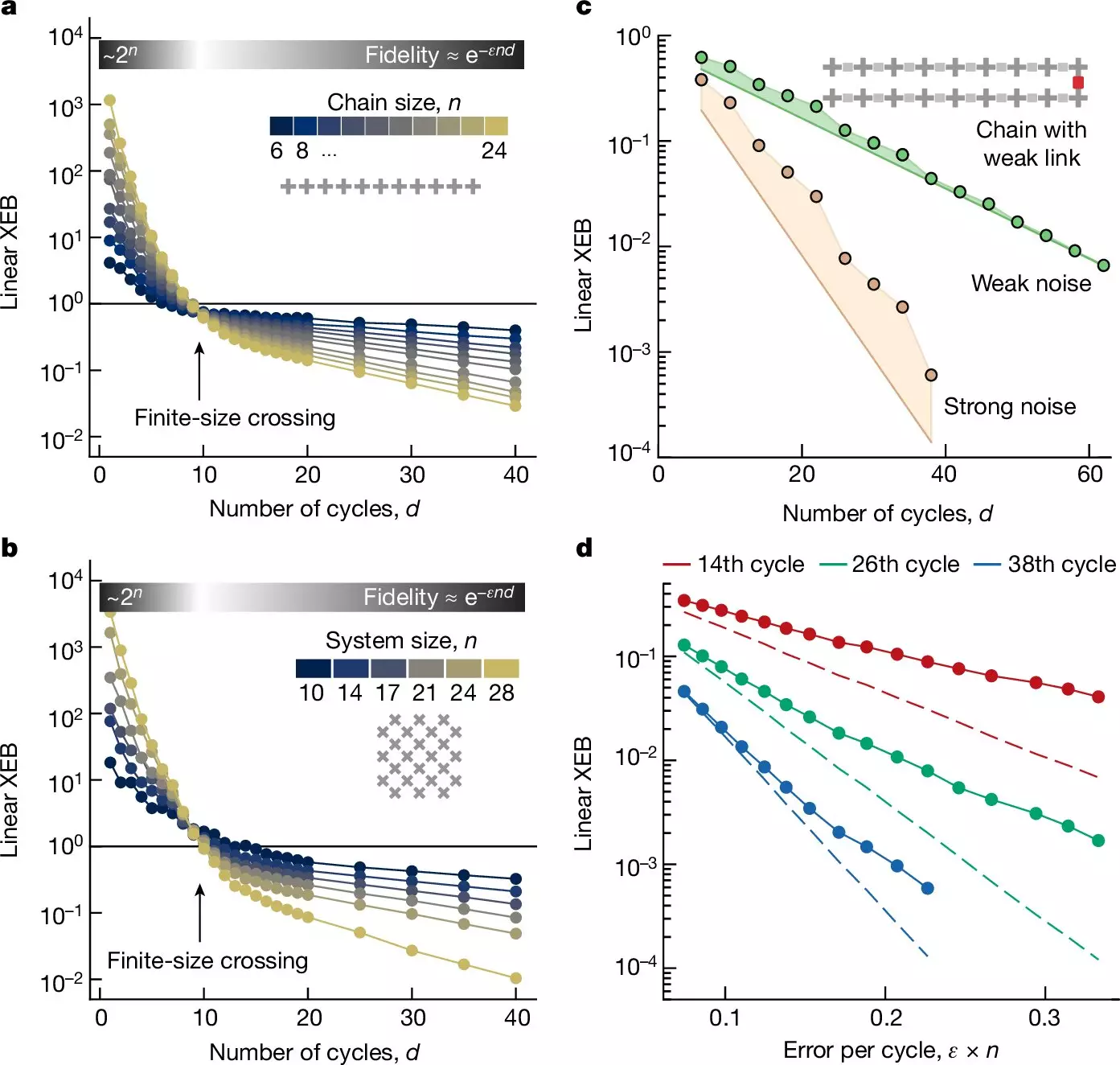

The domain of quantum computing has been characterized by its ambitious promises—solving highly complex problems at speeds unattainable by classical computers. For decades, academia and industry have grappled with the challenge of realizing this monumental leap in computing technology. Among the pioneers in this field is Google Research, whose recent study underscores a significant advancement in quantum computational efficiency. The research not only highlights the inherent potential of quantum systems but also addresses a critical barrier: environmental noise.
Noise interference represents one of the most formidable challenges facing quantum computing. Environmental fluctuations—from thermal dynamics to cosmic radiation—introduce errors that can compromise computational integrity. In their groundbreaking work published in the journal *Nature*, Google’s interdisciplinary team—comprising engineers, physicists, and quantum specialists—has illuminated how meticulously managing and reducing this noise can yield substantial performance improvements. By deploying their sycamore quantum chip within a chamber maintained at near absolute zero, the researchers significantly minimized the disruption caused by ambient noise.
The significance of these noise reduction efforts is underscored by the concept of quantum advantage, which refers to the point at which a quantum computer can perform a task beyond the reach of classical counterparts. Through their experimental modifications, Google’s researchers achieved a marked improvement in error rates, elevating the error-free rate from 99.4% to 99.7%. This seemingly small increment translates to dramatic enhancements in computational capacity, solidifying the chip’s ability to outperform traditional supercomputers on random circuit sampling (RCS).
The researchers’ success with random circuit sampling exemplifies the broader evolution of quantum algorithms, showcasing their viability for real applications. Historically, RCS has served as a testing ground, generating random numbers to assess computational effectiveness. By juxtaposing quantum and classical processing methods, researchers can glean insights into the practical capabilities of quantum systems.
Despite the progress demonstrated by Google, the broader journey toward quantum practicality remains ongoing. The research community is actively exploring diverse algorithms tailored to leverage the strengths of quantum architectures while simultaneously crafting error correction mechanisms. This effort signifies a collective understanding that while quantum supremacy has been approached, it is accompanied by an intricate web of computational dynamics that must be navigated for sustained innovation.
Google’s latest breakthrough not only advances its standing in the quantum race but also lays crucial groundwork for the next generation of computing capabilities. This research could augment the momentum towards developing quantum computers that fulfill their promise of solving problems beyond the reach of contemporary technology. As researchers continue to refine methods for managing environmental influences and enhancing computational fidelity, the dream of a truly functional and revolutionary quantum computer edges closer to reality.
Google’s exploration of noise reduction exemplifies a significant milestone for quantum computing. It serves as a reminder that perseverance in research and a focus on overcoming inherent challenges can facilitate groundbreaking advancements in technology, reshaping our understanding and utilization of computation itself. As the boundaries of what is possible continue to expand, we find ourselves on the precipice of a new era of innovation, driven by the emerging capabilities of quantum systems.
A groundbreaking expedition led by an international research team, featuring esteemed scientists from the University…
The pursuit of coherent control over wave transport and localization stands as a monumental challenge…
In recent astronomical explorations, researchers have unearthed a striking phenomenon emanating from a distant corner…
The quest for sustainable practices within the chemical industry is more critical than ever. Researchers…
In the complex interplay of human health, the relationship between the gut and the brain…
The relentless drive for sustainable energy solutions has fueled remarkable advancements in solar technology, with…
This website uses cookies.